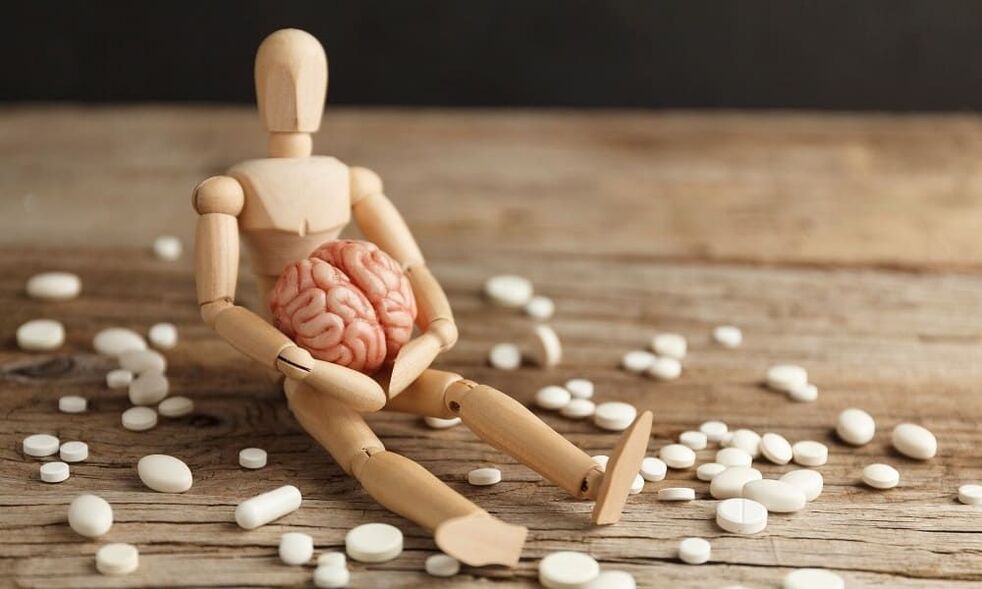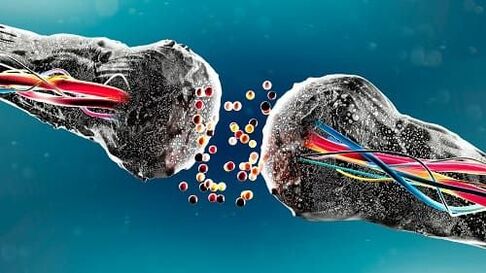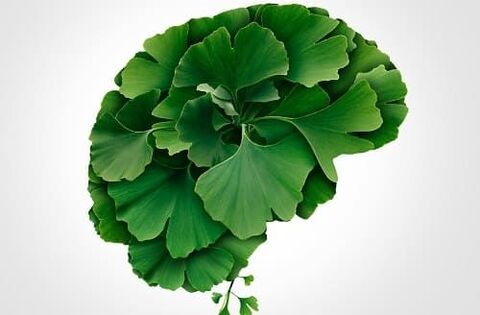
Causes of memory impairment

- Physical exhaustion due to chronic stress, fatigue, chronic depression, or other mental illness;
- Brain tissue circulation disorders caused by neurological and physical diseases and injuries;
- Vitamin and nutrient deficiencies, especially trace element deficiencies in childhood;
- Viral and bacterial infections of cerebral cortex and membranes;
- Mental illness, its first manifestations preceding the development of psychosis;
- Alcohol or drug addiction, which has damaging effects on neurons;
- Traumatic brain injury or head surgery;
- Formation of benign or malignant tumors and other tumors (parasitic cysts);
- Degenerative processes caused by aging or the development of neuronal pathological processes, such as Alzheimer's disease.

Drugs that reduce memory

- Tablets used to treat angina and high blood pressure;
- anticonvulsants;
- Early antihistamines;
- Drugs and sedatives to treat insomnia;
- Certain classes of antibiotics.
required funding group

- Nootropics that improve brain nutrition activate metabolic processes in neurons. Neurometabolic stimulants enable the brain to better retain information while protecting it from external negative influences.
- Psychostimulants-Adaptogens. Used for overexertion and constant stress. Gently improves brain function by increasing energy output. The base of the composition is usually natural.
- Corrector of energy metabolism. Products based on natural ingredients. One of its characteristics is the gradual cumulative effect. They slowly but gently increase their effects, improving memory and other cognitive functions.
How brain drugs work

- Protein synthesis is normalized. Brain cells are composed of lipoproteins, fatty compounds and proteins. Protein metabolism disorders are risk factors for memory impairment and cognitive impairment.
- Activates neuronal synthesis and utilization (uptake) of glucose. This carbohydrate is the brain's primary fuel; cells absorb it directly, without the need for insulin.
- Improve nucleic acid metabolism and contribute to the stability and development of neuronal activity. It also helps restore brain cells.
- Stimulates the cholinergic system, thereby reducing the risk of development and progression of memory problems.
- Has a positive effect on the monoaminergic system. The production of the hormone, dopamine, required for active thought processes, is enhanced.
Indications

- depression, chronic stress;
- formation of neurosis;
- vegetative vascular dystonia;
- Consequences of neurological infections, debilitating conditions;
- Encephalopathy, dementia;
- Cognitive failure due to intellectual overload;
- Brain tissue is often starved of oxygen, as in atherosclerosis;
- Poisoning of the body, affecting the nervous system and brain.
Contraindications

- allergic reactions to active substances and auxiliary ingredients;
- increased neuronal excitability and risk of seizures;
- Hypertension, high blood pressure;
- Sleep disorders – Insomnia may worsen;
- Nausea, digestive disorders;
- Increased psychological emotional and exercise anxiety.
Nootropics No Prescription Required
- Piracetam, the first nootropic. Popular substances. As a panacea, it can be used to treat more than 50 diseases. Both as a main ingredient and as an auxiliary agent. One of its characteristics is that it increases the spasmodic readiness of neurons.
- Ginkgo biloba improves cognitive function, strengthens blood vessel walls and improves oxygen supply to the brain. Created based on extracts of the plant of the same name.
- Glycine, amino acid. A common remedy to support and enhance memory during periods of overload. Based on amino acids used to build cellular proteins and protect neurons from overexcitability
- Gamma-aminobutyric acid, a neurotransmitter derivative. Improve brain nutrition, blood circulation and oxygen saturation. It is used to prevent Alzheimer's disease or cerebral vascular disease.
- Vinpocetine helps stabilize circulation to the brain. The point of influence is to normalize brain nutrition by dilating blood vessels and improving glucose metabolism. Additionally, it helps reduce the risk of thrombophlebitis. Caution is recommended in patients with cardiac arrhythmias.

best drug ratings

- Medications with Piracetam. A versatile nootropic that positively affects memory, concentration, and brain performance at any age. It is used for the treatment of children, adults and the elderly. Accelerates the transmission of brain impulses, helping to better record information in memory.
- Derivatives of succinic acid. Stimulates the metabolic process of the nervous system, improves mental and emotional endurance, and accelerates the removal of toxic substances from the body. Because of this latter ability, it is often used to treat addiction.
- Hopantothenic acid is known for its psychostimulant effects and is included in many medications. Popular with people actively engaged in intellectual work. It is considered one of the best treatments for relieving chronic fatigue and activating memory and concentration. Enhance human intelligence. The course of treatment is only 1 month, and you can feel the effect after taking the first pill.
- Complex of plant origin. Gently affects mental abilities, improves memory and concentration, reduces irritability and stress. It's so popular that even drivers can take it due to its low risk of side effects.









































































